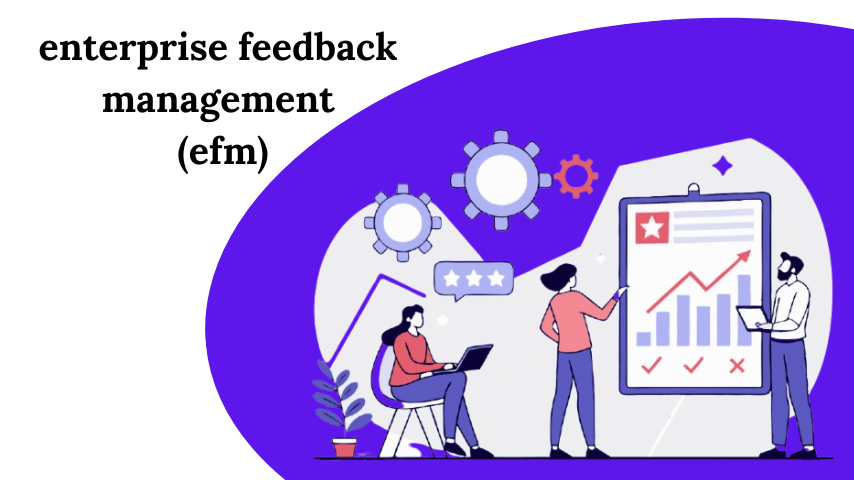Feedback is a critical component of strategic management that enables organizations to assess their performance, identify areas of improvement, and align their strategic objectives with organizational capabilities. In today's dynamic business environment, effective feedback mechanisms can be the difference between successful strategic implementation and organizational stagnation. This article explores the intricate world of feedback in strategic management, highlighting its importance, types, and impact on enterprise feedback management.
The Essence of Feedback in Strategic Management
Defining Strategic Management Feedback
Strategic management feedback is a systematic process of collecting, analyzing, and communicating information about an organization's performance, strategies, and operational effectiveness. It serves as a crucial mechanism for:
- Evaluating current strategic initiatives
- Identifying potential gaps in strategy execution
- Providing insights for continuous improvement
- Enabling data-driven decision-making
- Aligning organizational goals with performance outcomes
The Critical Role of Feedback in Organizational Success
Feedback in strategic management goes beyond simple performance evaluation. It acts as a strategic tool that:
- Enhances Organizational Learning: By creating a culture of continuous improvement
- Facilitates Strategic Adaptation: Allowing organizations to respond quickly to internal and external changes
- Promotes Accountability: Establishing clear performance expectations and measurement criteria
- Supports Decision-Making: Providing actionable insights for leadership
Types of Feedback in Strategic Management
Internal Feedback Mechanisms
Performance Evaluations
- Annual and semi-annual employee assessments
- 360-degree feedback systems
- Key Performance Indicator (KPI) tracking
Departmental Reports
- Quarterly performance reviews
- Strategic initiative progress reports
- Budget and resource utilization analyses
External Feedback Channels
Customer Feedback
- Satisfaction surveys
- Net Promoter Score (NPS) measurements
- Customer interaction analytics
Stakeholder Insights
- Investor feedback
- Market research reports
- Competitive landscape analysis
Enterprise Feedback Management: A Comprehensive Approach
Enterprise feedback management (EFM) represents a holistic strategy for collecting, managing, and analyzing feedback across an organization. This approach integrates multiple feedback channels to create a comprehensive understanding of organizational performance.
Key Components of Enterprise Feedback Management
- Centralized Feedback Collection
- Advanced Analytics
- Real-time Reporting
- Cross-functional Integration
- Continuous Improvement Frameworks
Benefits of Robust Enterprise Feedback Management
- Improved strategic alignment
- Enhanced decision-making capabilities
- More responsive organizational culture
- Better resource allocation
- Increased competitive advantage
Implementing Effective Feedback Strategies
Best Practices for Feedback Integration
Create a Feedback-Positive Culture
- Encourage open communication
- Remove hierarchical barriers
- Reward constructive feedback
Develop Robust Feedback Systems
- Utilize advanced technological platforms
- Ensure data privacy and security
- Implement user-friendly feedback mechanisms
Establish Clear Feedback Protocols
- Define feedback collection processes
- Create standardized evaluation criteria
- Develop transparent communication channels
Challenges in Strategic Management Feedback
Common Obstacles
- Resistance to change
- Inadequate technological infrastructure
- Lack of leadership support
- Insufficient data interpretation skills
- Inconsistent feedback mechanisms
Overcoming Feedback Challenges
Invest in Training
- Develop feedback interpretation skills
- Create awareness about feedback importance
Leverage Technology
- Implement advanced analytics tools
- Use AI-driven feedback analysis platforms
Foster a Learning Culture
- Encourage continuous improvement
- Normalize feedback as a growth opportunity
Measuring Feedback Effectiveness
Key Performance Indicators (KPIs)
- Feedback response rates
- Implementation of suggested improvements
- Time between feedback collection and action
- Overall organizational performance changes
- Employee and stakeholder satisfaction scores
Technological Innovations in Feedback Management
Emerging Technologies
Artificial Intelligence
- Predictive feedback analysis
- Automated sentiment detection
Machine Learning
- Advanced pattern recognition
- Personalized feedback recommendations
Cloud-Based Feedback Platforms
- Scalable feedback collection
- Real-time collaborative insights
Q1: What is the difference between feedback and performance management?
Feedback is a continuous process of gathering insights, while performance management is a structured approach to evaluating and improving individual and organizational performance.
Q2: How often should feedback be collected?
The frequency depends on organizational needs, but quarterly or semi-annual comprehensive feedback with continuous micro-feedback is recommended.
Q3: Can small businesses benefit from enterprise feedback management?
Absolutely. Scalable feedback management solutions can be adapted to businesses of all sizes.
Q4: How do you ensure feedback remains objective?
Implement multi-source feedback, use standardized evaluation criteria, and train evaluators in unbiased assessment techniques.
Q5: What technologies support enterprise feedback management?
Cloud platforms, AI-driven analytics tools, survey software, and integrated management systems are key technological enablers.
Conclusion
Feedback in strategic management is not just a process but a strategic imperative. By embracing comprehensive enterprise feedback management, organizations can transform raw data into actionable insights, driving continuous improvement and maintaining competitive edge.
The future of strategic management lies in creating adaptive, feedback-responsive organizations that can quickly interpret, learn, and evolve. Investing in robust feedback mechanisms is no longer optional—it's a critical strategy for sustainable success.
Final Takeaway: Feedback is the compass that guides organizational strategy, enabling businesses to navigate complex environments with precision and agility.



